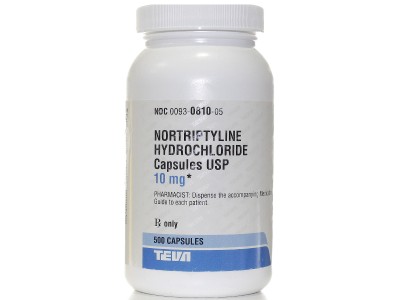Nortriptyline, known by its brand name Nortriptyline Hydrochloride, is a medication belonging to the class of tricyclic antidepressants (TCAs). This drug is primarily prescribed to treat major depressive disorder and is recognized for its efficacy in alleviating symptoms of depression. Additionally, Nortriptyline is used to manage certain types of neuropathic pain, making it a versatile medication with dual therapeutic applications.
The mechanism of action of Nortriptyline involves its ability to affect the balance of neurotransmitters in the brain, particularly serotonin and norepinephrine. By influencing the levels of these neurotransmitters, Nortriptyline helps regulate mood and emotions, contributing to its effectiveness in treating depressive disorders.
Beyond its antidepressant properties, Nortriptyline Hydrochloride is utilized to address neuropathic pain conditions such as diabetic neuropathy and post-herpetic neuralgia. In these cases, the medication is believed to modulate pain signals within the nervous system, providing relief to individuals experiencing chronic or neuropathic pain.
It's important to note that Nortriptyline is available in both brand-name and generic forms. Generic versions contain the same active ingredient as the brand-name drug and are typically more cost-effective, providing an accessible option for those seeking affordable alternatives.
As with any medication, Nortriptyline may be associated with potential side effects, and its use should be supervised by a qualified healthcare professional. Patients prescribed Nortriptyline are encouraged to communicate openly with their healthcare providers about their medical history, any existing health conditions, and the potential benefits and risks associated with the medication. This collaborative approach ensures that Nortriptyline is prescribed in a manner that aligns with the individual's specific health needs and contributes to effective and safe treatment outcomes.

